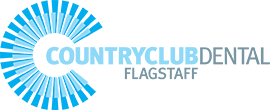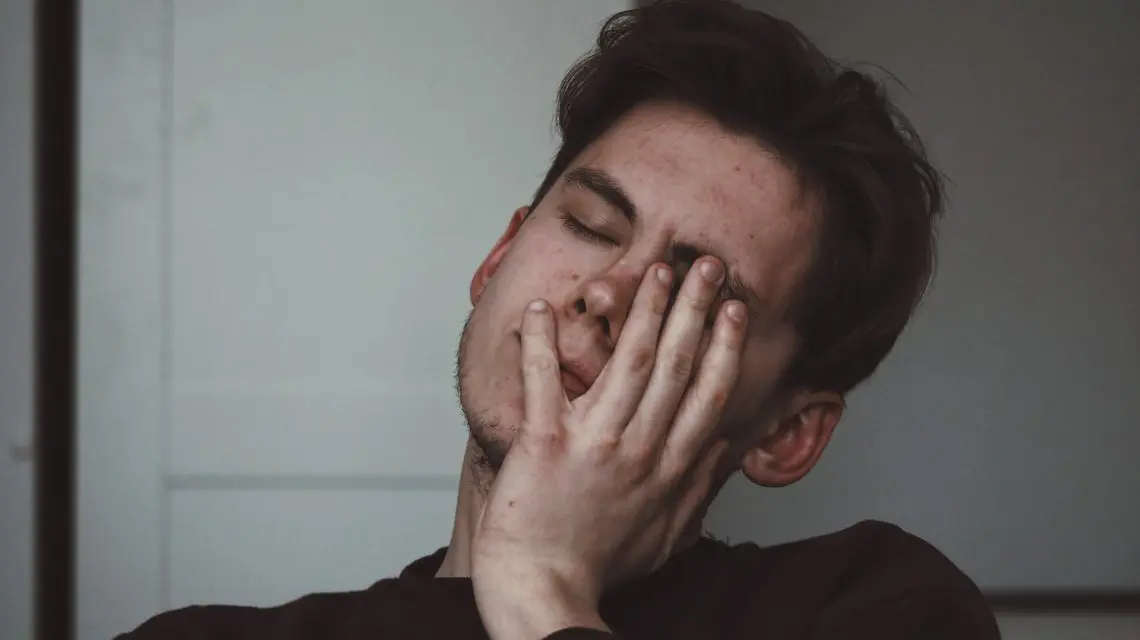If you suffer from grinding or clenching your teeth, you know how painful it can be. But did you know that it can also cause serious damage? Taking a few steps to reduce grinding and clenching will prevent consequences such as loose or cracked teeth and tooth sensitivity. At Country Club Dental, we want to help you keep your mouth healthy and pain-free. Here are our tips on how to stop teeth grinding and clenching your teeth.
What Are the Signs of Teeth Grinding?
Habitual teeth grinding and clenching is a condition known as bruxism, and it usually happens unconsciously. You might not even realize that you grind or clench your teeth—for most people, it happens in their sleep—until you start noticing the effects.
Teeth grinding symptoms include:
- Loose teeth
- Jaw, tooth, face, and/or ear pain
- Waking up with headaches
- Difficulty closing and opening your jaw
- Cracked, fractured, or broken teeth
- Broken or loose dental fillings or crowns
- Worn down or flattened teeth (your dentist is typically the one to notice this)
How to Stop Grinding and Clenching Your Teeth: 4 Tips to Protect Your Mouth
1: Wear a Mouthguard
To stop the effects of grinding and clenching your teeth at night, you’ll need to wear a mouthguard. A mouthguard or “bite splint” fits over your teeth and protects them from the pressure and friction from bruxism. While you can buy them at the store, it’s better to talk to your dentist about getting a custom-fit mouthguard for a more comfortable solution.
2: Reduce Stress
Stress and anxiety can cause teeth grinding and clenching in tense situations as well as in your sleep. Reducing stress through meditation, exercise, yoga, and therapy may stop bruxism or reduce your symptoms. Managing stress is essential to your overall health, as it can cause a variety of other mouth problems as well as increase your risk of a heart attack.
3: Relax and Massage Your Jaw
It’s important to relax the tension in your jaw, especially before bed, to help stop grinding and clenching your teeth at night. Jaw tension can also lead to TMJ disorders, which cause even more jaw pain. Gently massaging your jaw is a good way to reduce the tension.
If you catch yourself clenching your jaw at any point during the day, make sure to consciously relax the muscles. When your mouth is at rest, your upper and lower teeth should not touch, and your tongue should rest behind your front teeth.
4: Kick Bad Chewing Habits
Bad habits like chewing on ice cubes or objects like pens involve repetitive movements that can tire out the jaw and lead to bruxism. They can also cause your teeth to chip or crack, so it’s important to kick the habit as soon as possible. Frequently chewing gum also overworks your jaw muscles, so you should try to avoid chewing gum every day or for hours at a time.
Treating Tooth Damage in Flagstaff, Arizona
If you habitually grind or clench your teeth, it’s important to treat the damage as soon as possible. At Country Club Dental in Flagstaff, we can restore worn down and cracked teeth, replace fillings and crowns, fit you with a mouthguard, and more. We can also help you figure out how to stop clenching and grinding your teeth. Call us at 928-526-4314 today to schedule an appointment.
Images used under creative commons license – commercial use (10/7/2022). Photo by Adrian Swancar on Unsplash


